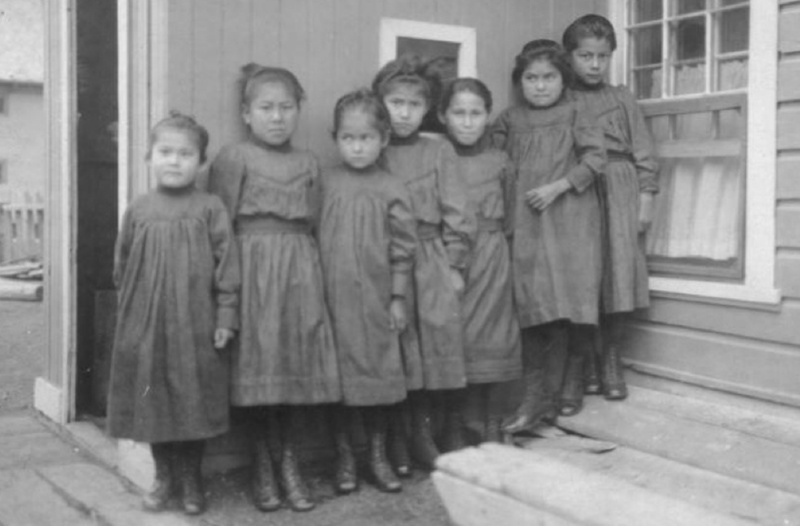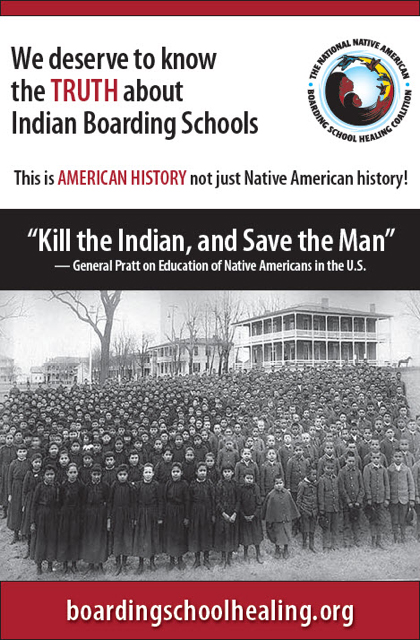
“I was four years old when stolen and taken to Chemawa, Oregon. The matron grabbed me and my sister, stripped off our clothes laid us in a trough and scrubbed our genitals with lye soap, yelling at us that we were ‘filthy savages, dirty.’ I had to walk on my tip toes screaming in pain.” – Elsie, Yakima (Interview by Dr. Denise Lajimodiere)
Healing begins with the Truth

In Canada, prior to the Truth and Reconciliation Commission (TRC), 30% of people knew about the Indian Boarding Schools in that country. After the TRC, 70% knew the truth about the abuses and tragedies which took place in their country’s history. In America, we estimate less than 10% know about the US Boarding School Era.
In Canada, the government and church denominations brought forth all their boarding school records for the Truth and Reconciliation Commission. In the U.S. we are still seeking records that identify all details about the schools and fate of Native American students taken into federal custody for Boarding School attendance. It’s time the U.S. Government fully acknowledge the impact of this country’s Boarding School Policy.
Based on a survey by NABS, Native peoples need acknowledgement from the perpetrators of the Boarding School harms inflicted on our tribal nations. Namely, the Federal Government and the Churches.
- 98.8% said that the U.S. needs to acknowledge the TRUTH: that Indian children were forcibly abducted, sent hundreds of miles away, beaten, starved, or abused.
- 96.9% said that the U.S. needs to share the FACTS about how many children were sent to Boarding Schools, how many died at schools, and why there are graves marked "unknown" at many school cemeteries.
- 91.7% of respondents believe that due to the high incidence of substance abuse and mental health issues resulting from the historical trauma of having attended boarding schools that increased funding of community-oriented healing programs in Indian Country and urban Native populations should be a priority.
Honoring Our Pain: Dedicating time and attention to honoring our pain ensures space for grief, outrage, and sorrow. This caring derives from our interconnectedness with all of life.
–Stone Child College, Montana, Historical Trauma Curriculum




